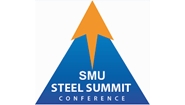Prices

August 27, 2019
Other Mills to Stick with Index-based Contracts
Written by Tim Triplett
U.S. Steel raised industry eyebrows earlier this month when it informed its U.S. sales force that it would no longer use index-based pricing effective with its 2020 contracts. Would other mills climb on the bandwagon? And if so, what might that mean for steel prices?
Based on comments from chief executives of other industry-leading mills, it appears there will be plenty of legroom on the bandwagon. U.S. Steel may find itself alone for the ride.
All four executives on the mill panel earlier today at SMU’s Steel Summit in Atlanta said they would continue to entertain index-based pricing if that’s what customers want.
Basing contracts on a variety of indices is a common way of doing business in the industry. Many prior spot buyers have moved to index-based contracts for the ease of business, if nothing else, said Mark Millett, president and CEO of Steel Dynamics Inc. “We are not following suit [with U.S. Steel].”
“We have a variety of ways to price contracts depending on the customer and their needs. We will continue to work with our customers very closely,” said Ladd Hall, Nucor executive vice president.
John Hritz, president and CEO of JSW USA, added: “We are eager for long-term contracts. I don’t care if they are index-based or not. We will try to put contracts in place so they are as win-win as possible. I don’t know why you would throw any concept out; it doesn’t make sense to me.”
Cesar Jimenez, CEO of Ternium, Mexico, echoed the other panelists’ sentiments.
Explaining its reasoning in the letter to its sales force, U.S. Steel said: “A significant portion of the flat rolled market which now transacts under these price adjustable contracts is being drive by spot market transactions which are only a minute fraction of the total market. This often serves to distort the economics of these volume-based agreements.
“Transaction by transaction discussions and/or monthly negotiations used to be a staple in our business relationships, not to mention quarterly, semi-annual and annual fixed-price agreements, and we are prepared to utilize any of these options while also satisfying the volume needs of our customers over a defined period,” the company said.







